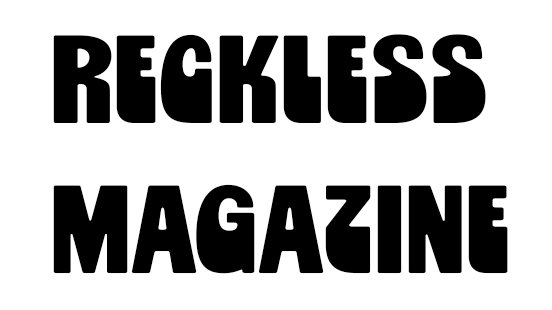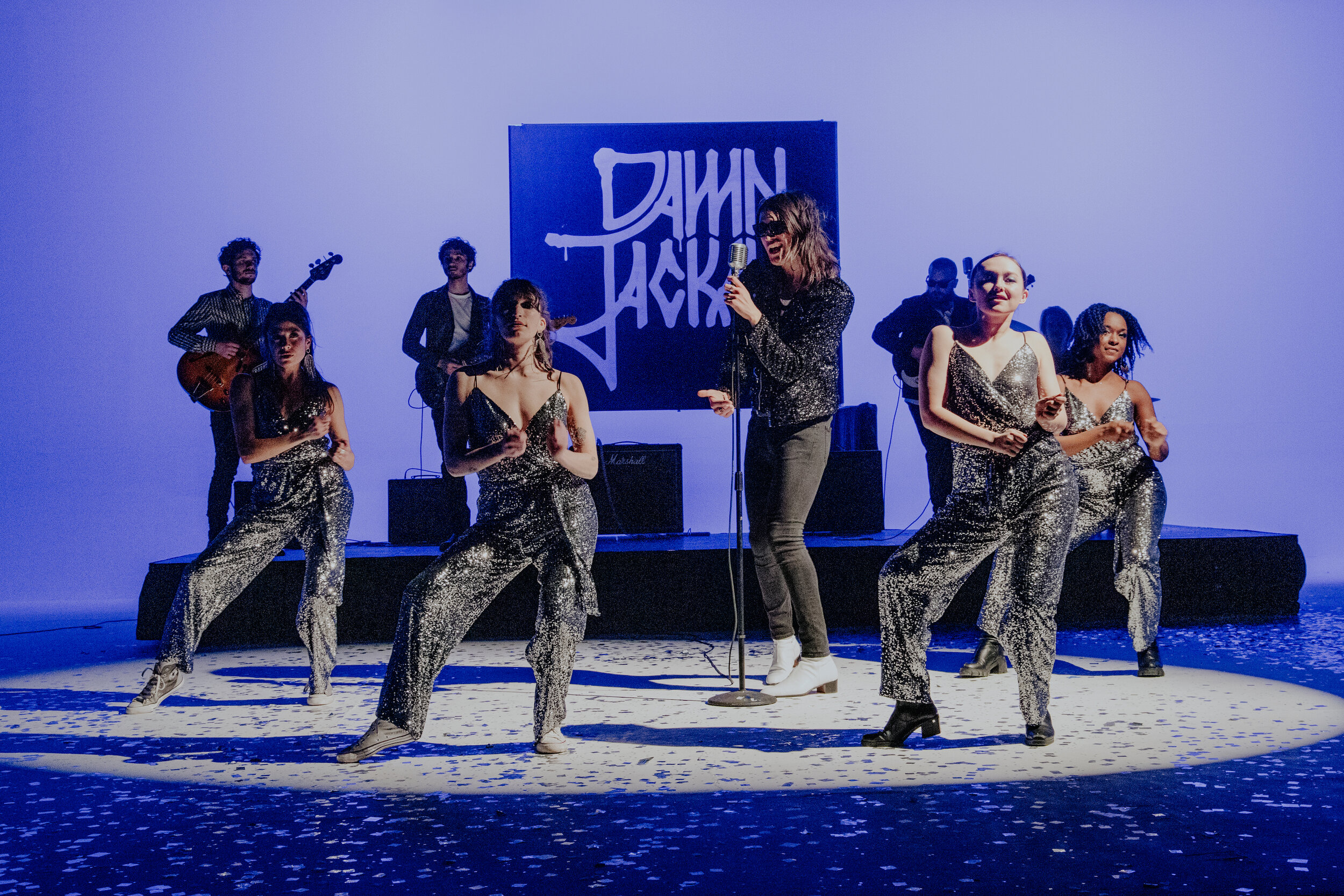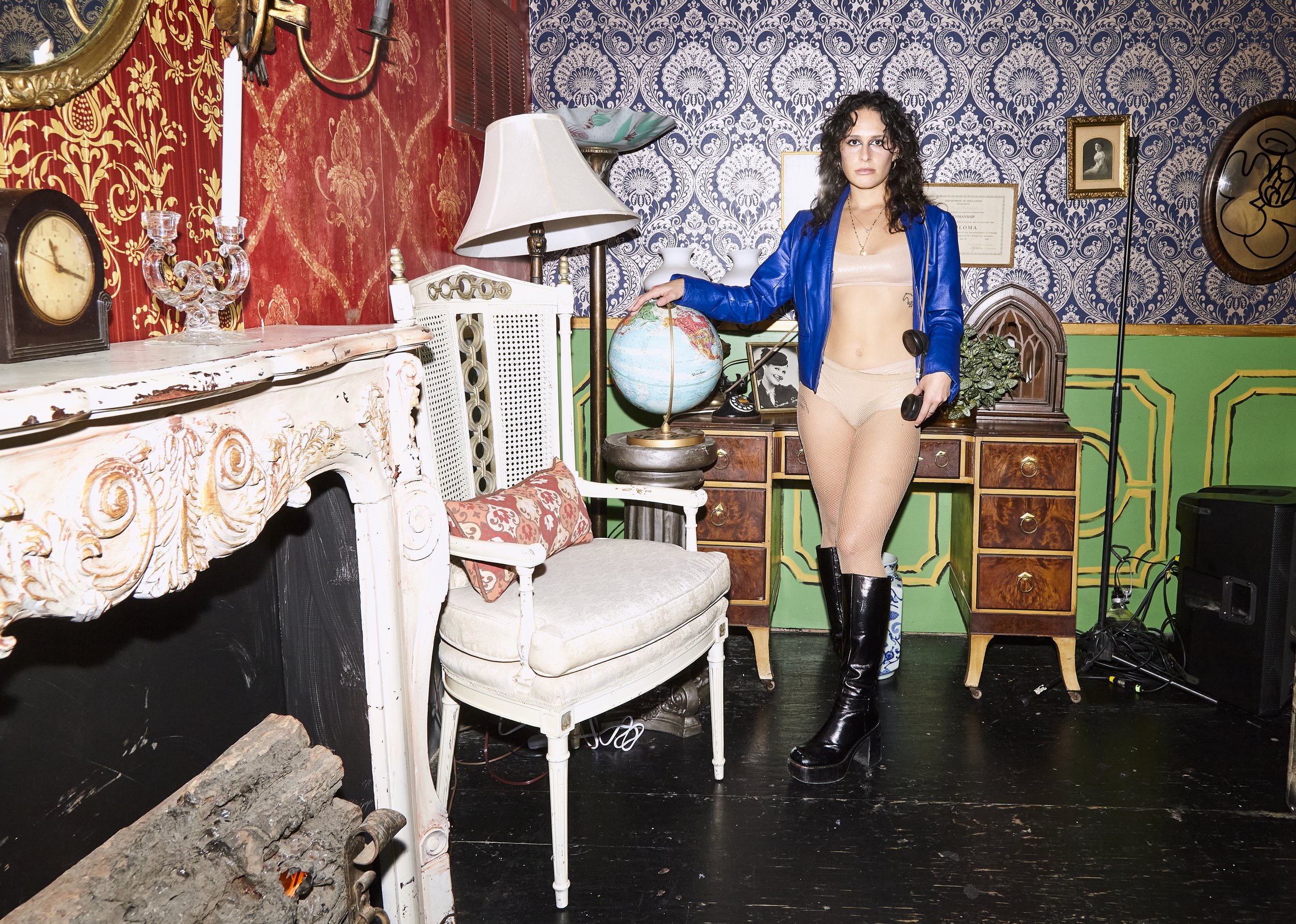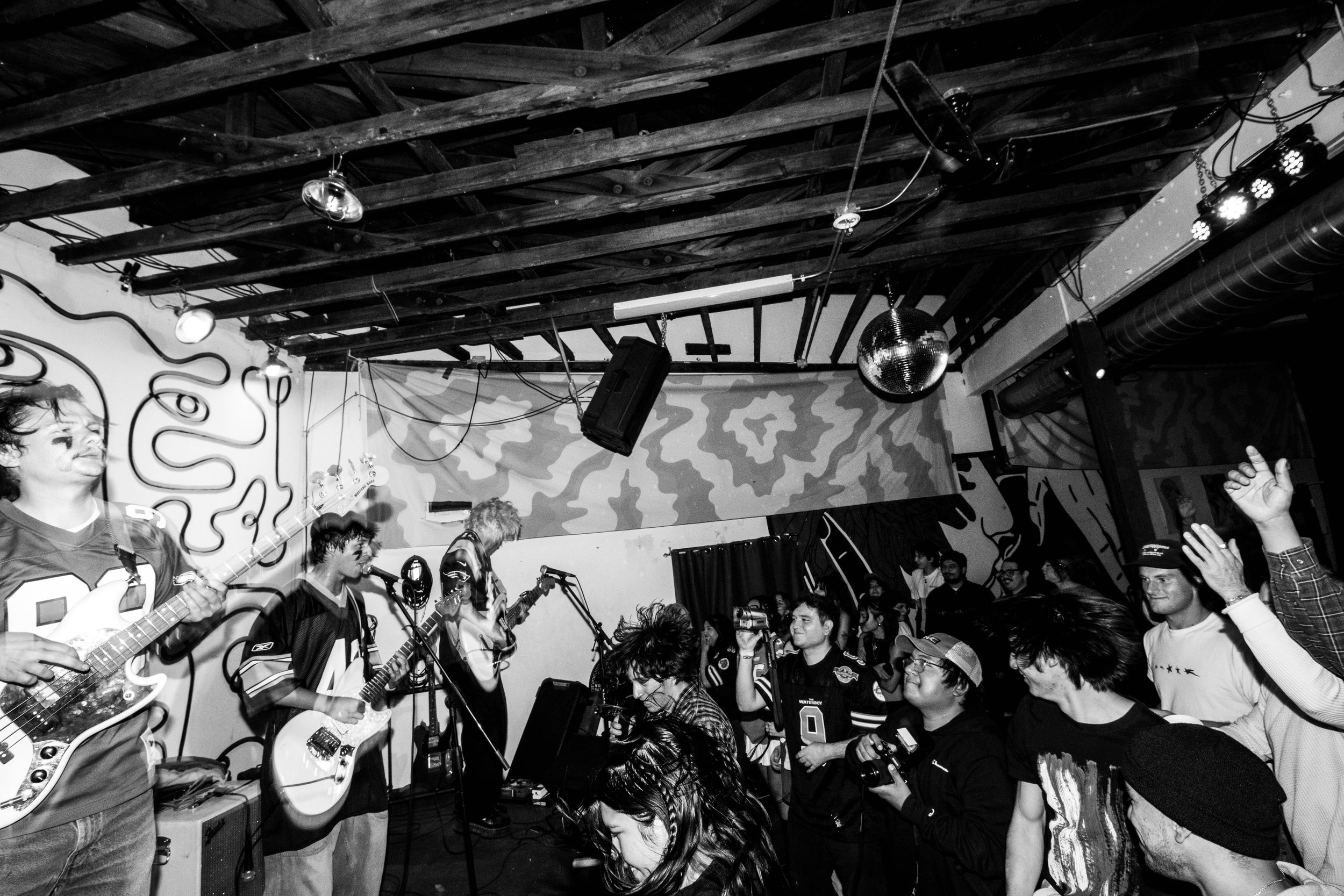Rebel, Rebel

NOT PLAYING BY THE RULES
Written and Photographed by Lili Gyarmati
Unpronounceable name for an unconventional band from the other side of the world: TPSRPRT. From Budapest, Hungary, TPSRPRT redefines instrumental music by mixing genres, tunes and rhythms that shouldn’t necessarily work together, merging into a surreal harmony. They are rebels who believe in inclusivity, freedom, and unconventional love by creating music with passion, creativity and a pinch of humour in a small Eastern European country in defiance of the conservative cultural leadership.
Budapest, Hungary
TPSRPRT. This is surely an unusual name even for a band. How did you come up with it?
David: Well, it was partly an outcome of impatience. (laughs) I was searching for possible names on Bandcamp back in 2014 and I had to face the postmodern dilemma that all names I liked were already taken. Like “Shit-Eaters”,”The Weak”, or ”Waste”. I realised for me it’s more important to have a name that’s individual rather than a catchy one. And I also just rewatched the movie Office Space back in the day and the TPS (Test Procedure Specification) reports were the most hated ones they had to deal with. I loved the critical attitude of the film towards bureaucracy, working culture, and the whole hierarchic system so it was a good source of inspiration.
Marketing strategies don't work for art, they spoil it, militarize it in a sense. Artificial Intelligence is using thousands of computers and a tremendous amount of energy to seek the individual’s attention. Everybody is a celebrity now, and it's kinda boring. Rock’n’Roll for me is not about branding. This unconventional name is our rebellious response to all this.
Tell me about the early days, how did you all get on board?
David: A friend of mine wanted to go to a festival with me but had no train ticket nor the money to buy one. I helped him out so in exchange he gave me a guitar. I thought it would be nice to play on it since it’s there, so I put together some tunes which turned into songs eventually. I sent these early versions over to my friends hoping that we could make some proper instrumental music out of these somehow.
Arnold: I got my keyboard as well in exchange for a train ticket. (laughs) Unfortunately not, but when I moved to Budapest in 2016 David invited me to have a burger at his favourite diner so he could ask me if I wanted to make music together. I was involved in another band at that time so I wasn’t sure I would have the time. Saying no wasn’t an option apparently, as he kept on calling me all the time after this, or when I ignored his calls he turned to my flatmates. So eventually I said okay, which was the best decision.
Muki: I joined a bit later at the beginning of 2019 as the bass player before me decided to move to Vienna so he recommended me as a replacement. I was a bit surprised as I never played the bass before but since then I came to like it and this band as well big time
Sanya: I joined the same time as Arnold around 2016. A mutual friend of ours told me a band is looking for a drummer, so I checked them. I loved the weird mixture of electronic and instrumental music, so I decided to give it a try. Back in the day the band had a female bass player, Virág who told me on the first rehearsal that I shouldn’t be surprised that she cannot really play on her instrument, but it’s gonna be all good. (laughs)
David: Yeah, it was great fun playing with Virág as well. But now she puts her creative energy into graphic design and its great.
Did you know each other before being in the band?
Arnold: I’ve known David since high school as we were both raised in Debrecen in the eastern part of Hungary. I can remember one specific occasion when we were waiting for the night bus around 2007, finishing our last beer at the break of dawn deciding that once we will move to Budapest and start a band together.
David: I also remember a night around that time when we were hanging out by the big, brutalist 10 floor high concrete buildings and Arnold was showing us his drum and bass music he was creating under the name of Hypnotic through an old Sony Ericsson phone speaker. I was more interested in hip hop beats at the time but I really enjoyed the silliness in his music. Like he didn’t take himself very seriously, or showing off like ‘Hey, I’m a serious musician, and this is my music’. It was trippy with a good sense of humour and irony that I really appreciated. No wonder I bugged him later to collaborate finally.
Arnold: I think a good sense of humour is key in order to make good music. I mean, you have to take seriously what you do but in a playful way. You need an interesting upper-cut to make it original.
The first album goes by the name 1. What’s the story behind that?
David: For me this is like a photo album in a sense. It’s a document of our feelings and memories. When we play together there are certain tunes and impulses that stick with us and eventually these are the ones that evolve to songs. There is no concrete message or goal, we just want to share our feelings through the universal language of music and experience a bit of freedom. I think this album is like a helicopter that picks you up and takes you somewhere.
How would you define your style?
Muki: Cardboard jazz. (laughs)
David: Well, it’s not easy to define but maybe it’s somewhere between experimental rock krautrock and noise rock. But apart from genres the most important for us is adding a bit of humour to it, so it might be more accurate by the definition of cartoon rock.
Arnold: Experimenting is a major element when we create music. I just love when David brings a new pedal or some gadget that we can start to twist until it turns into something interesting. Most of our songs are born this way.
Sanya: Now that I think about it it’s not even really rock that we play. As a drummer I tend to play hip-hop beats or some punk rhythms. Muki on the bass mostly plays funky jazz themes.
David: Yeah, I agree. And all this mixed with Arnold’s hypnotic, psychedelic, fluxus-related electronic tunes with punk-rock riffs. It shouldn’t make sense, but it does.
How did you get through this strange year so far?
David: For me being in lockdown was a pleasant time-off, kind of refreshing. We were a bit bummed when we realised that it won’t be only two months as we expected and many shows might be postponed or canceled. It was especially sad when the concerts that had the most RVSP in the history of the band got canceled one after another. It wasn’t really the act of performing that we were missing but having a great time together with other people and being loud.
Arnold: I agree, this pause gave us a bit of perspective on what we’re doing which is always helpful. We rearranged our tracklist for the upcoming few shows for the summer and it was really great to go back finally and play together. I remember this huge energy that we felt during our first rehearsal after the lockdown. It was epic.
Sanya: I could finally spend some more time practising, playing, experimenting which I really appreciated. We were thinking about organising an online rehearsal but we held back until we could do it in real life and I agree, it was a good decision.
Muki: Well, as I had a complicated knee surgery earlier this year I would have stayed home anyway. At least I wasn’t alone I guess. But I could also spend more time on my music, which was great. As creatives we should make the best out of even the bad situations. I think we overall succeeded with this.
David: We are really unhappy with the way our government handled the situation. There were grotesque and unequal actions introduced about public gatherings. For example, it was and still okay to attend a football match without even wearing a mask, but all musical venues should be closed by 11PM and almost all festivals were cancelled because of the restrictions. To reflect on these strange unequal rules we dressed up as football players for one of our shows during the summer and told our audience that it’s not a concert but a football game, so there’s nothing to be afraid of, as according to our government the virus avoids football matches. Another huge problem is that the biggest, most emblematic rehearsal venue (called the Eastern Bloc) which is currently used by more than 300 bands including us, will be soon closed for good as a government-related businessman decided to buy the place and turn it into a luxury hotel. There is no other venue where these musicians could go at the moment. No shows and no place to practice is bleeding bands out which is a huge loss.
How challenging is it to make a living in Hungary as a musician nowadays?
Muki: Not easy by any means. I decided to live as a professional musician and ended up not having enough money to travel to Budapest from my current hometown for the rehearsals.
David: Corruption is a huge problem here, and with this state of mind they often treat culture as a financial opportunity. The culture politics in Hungary kind of expect everyone to share their conservative values of nation, homeland, religion and their ‘traditional’ interpretation of a family. Which is total nonsense and couldn’t be further from what art really is about. In my mind culture shouldn’t be about boundaries and necessarily tradition, it means much more. It should be about freedom and free expression for everyone. TPSRPRT has no sponsors or patrons, we put our money, time and love into it despite a quite heavy cultural head-wind from above. This means that we have to stick to our day jobs that pay the bill, Sanya and I are graphic designers, Arnold is an engineer, although it would be very liberating to concentrate only on playing music and metaphysical values.
Sanya: It surely is a complicated situation, but we believe in what we do and what’s most important, we do it from our hearts. I think it’s the only way it’s worth doing.
Who is your audience?
Arnold: The people who are interested in our music are looking for something new. Maybe they are young and still discovering genres, or less young but thirsty for something fresh and unusual. Thankfully we have quite a few people in Budapest who are like this.
David: The lights on the stage blind us so we don't really see who we are playing to. (laughs) Our regulars are mostly our friends, these shows have a massive house party vibe for them which we really appreciate. Unlike our leaders we believe in inclusivity. We are happy to see anyone coming from anywhere, looking anyhow, believing in anything. Luckily the underground culture is not dead yet, there are certain venues that support alternative culture as much as they just can. I’m grateful that they believe in what we do. These are the places where we always find our scene.
What about your plans for the future?
David: Our dream is to record our second album, we just started a Pateron page to make it happen (https://www.patreon.com/tpsrprt?fbclid=IwAR2-Q-Y9aU9W-zqpw0JXITJ4ylIIFov1rKv5p7GkoYccRtk2simkhI1xe9Q), shoot some music videos and find a new place for our rehearsals. It would also be great to play abroad in the future as we just discovered that we have some online audiences in California, Canada and in the UK. It’s great to see that what we do makes sense to people on the other side of the world.
Arnold: It would be great to write music for films. In a well-equipped studio preferably. (laughs) This is my biggest dream along with quitting my job and being a full-time professional musician.
David: It's hard to plan anything nowadays. It feels like we are blindly rushing into a huge collapse. I think the global discussion nowadays doesn’t share the values that we believe in. It’s a dominant culture of anger and disappointment, turning frustrated and short-tempered people against each other. We feel like aliens. There is no one and only truth. We all should practice unconditional love, sensibility, intelligence and freedom. This is what we’re aiming to transmit on a subconscious level. The world is full of big threats ticking like bombs, and there are way too many victims of the hierarchy already. Sometimes it's hard to realize how foolish this system really is. Growing quickly for more profit - it's a predictable failure and boring as hell. I don’t think the problems we created could be solved on the same level as their origin. All that money wasted for the military industry should go for saving people instead. We don’t need megalomaniacs, so called big leaders or representation in a political sense. Harmony and cooperation is the long term solution, whereas being fast, oppressive or competitive. The world needs basic income to overcome slavery, we need free access to information, cognitive liberty, consciousness, and the liberation of animals and wildlife. These should be our plans for the future.







